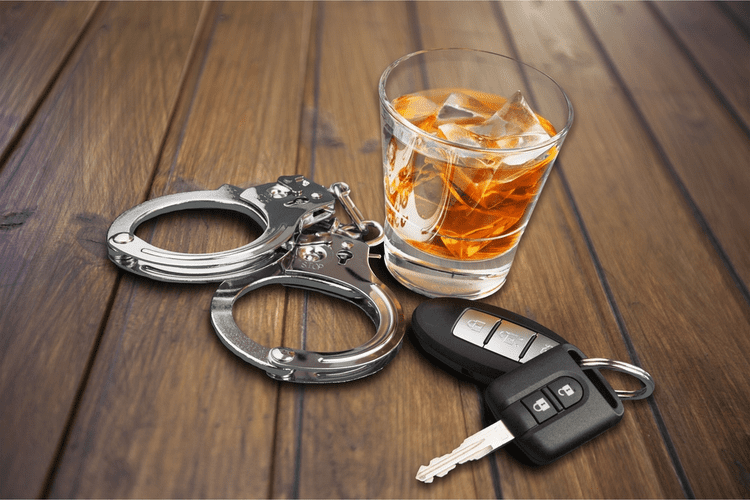Content
Alcoholism is considered a chronic disease for several reasons. It has some elements of heritability, meaning there are genetic components that can run in families. https://ecosoberhouse.com/ Whether or not you develop diabetes is based on a combination of your family’s genes and your personal lifestyle choices, like diet and exercise.

Alcohol use disorder can be a long-term condition, like high blood pressure or asthma. The National Institute on Drug Abuse considers alcoholism as a disease that changes your brain structure and how it works. The changes make it hard for you to control your drinking habit. This explains why many alcoholics and their loved ones search for solutions to an almost impossible quest of breaking the cycle of substance abuse.
The Hard Truth: There Is No Cure for Alcoholism
These include increased heart rate, sweating, anxiety, tremors, nausea and vomiting, heart palpitations, and insomnia. In more severe cases, people may also have seizures or hallucinations. Like many other substance use disorders, alcohol use disorder is a chronic and sometimes relapsing condition that reflects changes in the brain. This means can alcoholism be cured that when people with the disorder are abstaining from alcohol, they are still at increased risk of resuming unhealthy alcohol consumption, even if years have passed since their last drink. Treatment for alcohol use disorder may include talk therapy (also called “psychotherapy”), support groups, medicines, or a combination of treatments.
What is the life expectancy of an alcoholic?
A number of research studies have been conducted recently to determine how many years alcohol typically takes off a person's life expectancy. In one study, which examined people with and without alcohol use disorder from 1987 to 2006, it was discovered that life expectancy was 24 to 28 years shorter in alcoholics.
You might smell something you really don’t like (in my case, it’s baked potatoes), and you feel a sinking feeling. The brain is designed to learn things, and it doesn’t tend to forget things that it has learned, not wholly. Patches cannot be installed through a convenient medium (although how cool would it be to be able to upload vital information directly to the brain?), and we cannot reboot. Our self-assessment may be helpful in recognizing substance abuse in yourself. Alcoholism is like a fitness freak who does 500 pushups every day.
Made with ❤ for Seacrest Recovery Center
AA and similar 12 step programs leave many looking for a more effective addiction therapy. The Sinclair Method is a scientifically proven treatment developed by Dr. John David Sinclair that cures alcoholism. While traditional 12 step and AA rehab programs only see a 15% long term success rate, TSM recovery success rates are 78% or higher.
- Chronic diseases are the top cause of disability and death in the U.S. and the leading contributor to the nation’s $3.5 trillion in annual health care costs.
- Long-term, heavy alcohol abusers may do best by detoxing under medical supervision.
- Only a quarter of participants said they had ever gotten treatment for their drinking problems.
- HIR will give you the reasons to desire your recovery.
Some users report a decreased appetite, nausea, or a reduced craving for cigarettes. If you are concerned about side effects or want to know more about Naltrexone or Nalmefene, ask your doctor and they should be able to provide you all and any information.
Online Therapy
You need to realize that alcohol is already making serious problems to your relationships, career/studies, social standing and their future. You may wake up one day realizing that you don’t want alcohol anymore and will do anything to get back on track. Ultimately, you need to have the motivation to be open to different recovery strategies. These tips can help you increase motivation during your time in rehab in order to thrive when you’re out. Genetic basis to drinking motives that links them to alcohol consumption and alcohol use disorder. People who’re dependent on alcohol may need to learn skills and coping mechanisms to help avoid alcohol once you leave a treatment center or return to familiar environments.
Medically managed withdrawal or detoxification can be safely carried out under medical guidance. Medications, such as benzodiazepines, are given to help control withdrawal symptoms.
Requiring more alcohol over time to achieve the same level of desired intoxication (i.e., developing tolerance). Persistent trouble with cutting down or controlling alcohol use. Alcoholics Anonymous– Learn more about the 12 steps and find a support meeting in your area. Rethinking Drinking – Tools to help you check your drinking patterns, identify signs of a problem, and cut back. Remind yourself that one drink or a brief lapse doesn’t have to turn into a full-blown relapse. Alcohol abuse is often a misguided attempt to manage stress.

Distance yourself from people who don’t support your efforts to stop drinking or respect the limits you’ve set. This may mean giving up certain friends and social connections.
